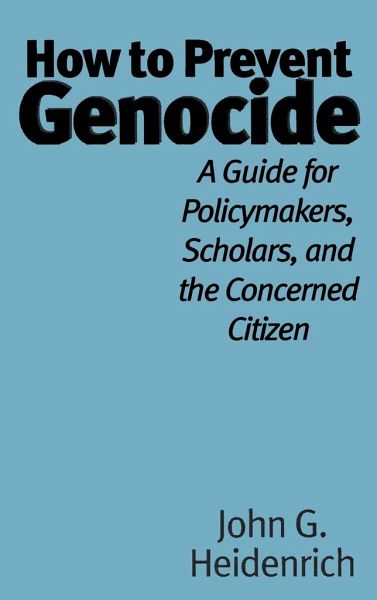
How to Prevent Genocide
A Guide for Policymakers, Scholars, and the Concerned Citizen
Versandkostenfrei!
Versandfertig in 1-2 Wochen
88,99 €
inkl. MwSt.

PAYBACK Punkte
44 °P sammeln!
Genocide--the deliberate destruction, usually through mass murder, of an ethnic, racial or religious group--is the ultimate crime against humanity. Drawing upon a wide variety of disciplines, this study assesses ways to prevent this crime. While most books about genocide focus on the history of a particular event, such as the Holocaust, or compare case studies to derive empirical theories, this book outlines many practical aspects of genocide prevention. Heidenrich covers a broad spectrum of expert opinions, from Stanley Hoffmann to Henry Kissinger, as well as political opinions regarding geno...
Genocide--the deliberate destruction, usually through mass murder, of an ethnic, racial or religious group--is the ultimate crime against humanity. Drawing upon a wide variety of disciplines, this study assesses ways to prevent this crime. While most books about genocide focus on the history of a particular event, such as the Holocaust, or compare case studies to derive empirical theories, this book outlines many practical aspects of genocide prevention. Heidenrich covers a broad spectrum of expert opinions, from Stanley Hoffmann to Henry Kissinger, as well as political opinions regarding genocide that range from Ronald Reagan to Bill Clinton. Topics include international law, humanitarian intervention, early warning measures, and the effectiveness of such methods as diplomacy, economic pressure, and nonviolent resistance. Preventing genocide in a tense socio-political environment is no easy task, but such prevention is easier and more cost-effective than trying to put an end to genocide once it is already occurring.












